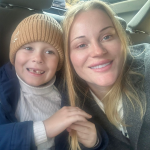My Autistic Child Refuses to Go to School
Autism Spectrum Disorder is a complex disease, but it is well-studied by scientists. Practical medicine has a lot of information about methods of influencing pathology, and psychotherapists and teachers have been using them with some success. However, the situation is not so simple, because each case is unique and requires a personal approach to drafting a therapeutic protocol.
Many children with ASD have a common feature which manifests in their reluctance or inability to interact with others. These children have problems in building social ties and communicating with their peers and teachers. That’s why psychotherapists often hear from parents, ‘My autistic child refuses to go to school.’ So, it is necessary to understand the reasons for this reluctance and find ways to overcome it.
Reasons why an autistic child does not want to go to school:
- Lack of social communication skills
- Perception of being ‘not like everyone else’
- Low intelligence
- Fear and anxiety
- Too much information and interaction with others
- Psychological discomfort
It is interesting that many children with ASD are aware of their particular worldview and psychological thinking, but do not understand the world around them. They have own views and reactions to certain situations. Differences in the behaviour of other people disorient them, causing confusion and the desire to return to their closed, understandable world.
The path to socialization can be long and difficult. Participation of specialists and hard, continuous work are needed. If an autistic child does not want to engage, although he simply may not have an interest in this activity, it can still be taught. An autistic child can be completely indifferent to things that inspire other children. Finding natural talents and developing new skills are simple, short ways to stimulate a child’s cognitive interests.
Six techniques that will make schooling understandable, interesting and simple for autistic children:
- Homeschooling should be exciting for the child.
- A school for children with ASD is an excellent start to prepare for admission to a regular school.
- Improving self-care skills will help the patient to be independent.
- Overcoming fear and anxiety with help of a psychologist is mandatory.
- Improving communication skills is the ability to quickly find a common ground with people.
- Studying self-control is the ability to manage emotions and reactions in a variety of everyday situations.
This is an excellent base for increasing self-esteem and confidence, which will become a powerful incentive for the child to independently find their place in society by learning how to behave acceptably, reacting appropriately to various stimuli, processing new information and, of course, making friends with other children.
Specialists of the Mardaleishvili Medical Centre deem these techniques to be effective, but advise parents to increase the potency of these methods by eliminating the cause of the disease — namely, disorders in the structure of the brain. Specialists of the centre treat ASD with stem cells. It is an unique method that restores brain function and minimises all symptoms. Such correction of childhood autism is highly praised by the world’s leading doctors due to its efficiency.
Sign up for stem cell therapy for children with autism. Use 6 techniques, and your child will learn happily.
Autism Treatment Center Videos
Autism treatment with own stem cells
Cord blood association congress
International Quality Crown
Autism Treatment Reviews
Autism treatment with own stem cells
The story of Alessandro (6 years old)
Autism Patient Testimonial - Stem Cell Treatment
Clients Testimonials

Review by Anastasia, mother of Yusup (8 years old) Read More

Feedback from Nathalie, mother of Andre (9 years old) Read More

Feedback from Yulia, mother of Emily (7 years old) Read More

Feedback by Everita, Katrina’s mother (5 years old) Read More

Feedback from Igor, David’s father (12 years old) Read More












